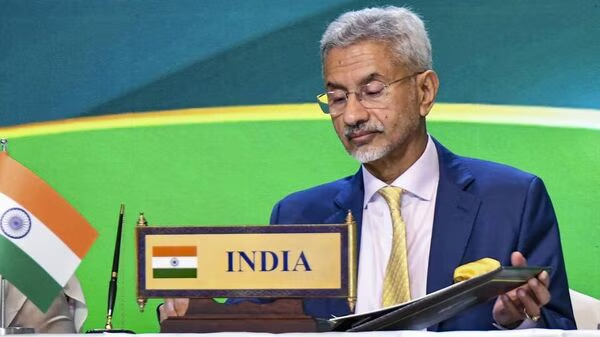India-China Relations Heading in a Positive Direction, More Efforts Needed: Jaishankar
- MGMMTeam

- Apr 9, 2025
- 2 min read
External Affairs Minister S. Jaishankar stated on Wednesday, April 9, that India and China are progressing in a "positive direction" in their bilateral relations. However, he emphasized that efforts are still required to fully normalise the relationship.
“I think we are moving in a positive direction,” Jaishankar stated while addressing the audience at the News18 Rising Bharat Summit.

India-China relations hit their lowest point since the 1962 war after the Galwan Valley clashes in 2020. However, through a series of diplomatic and military negotiations, both nations pulled back troops from several friction points along the Line of Actual Control (LAC) in eastern Ladakh.
In October last year, the two sides finalized a disengagement agreement for Depsang and Demchok, the remaining friction points in the region. “It's obviously better than the last time I was here. I think the disengagement, particularly the Depsang-Demchok, was important,” the MEA stated during the summit.
The disengagement in the Demchok and Depsang Plains of the Eastern Ladakh sector followed the agreements made by both sides, with Indian troops beginning to withdraw equipment to rear locations in these areas starting in October 2024.
This key development occurred shortly after India and China reached a border agreement, ending a four-year deadlock. Diplomatic relations between the two nations had deteriorated following the deadly June 2020 clashes, which resulted in the deaths of at least 20 Indian Army personnel and an unknown number of Chinese soldiers.
In the days following the agreement, Prime Minister Narendra Modi and Chinese President Xi Jinping held talks in Kazan, during which they made several decisions aimed at improving bilateral relations.
Border Issues Persisted
Jaishankar indicated on Wednesday that the ongoing border issues persist, at least in part, due to the gradual military buildup over the years.
“But there were many other things that also happened during this period; some of them were collaterals of the situation, and some were actually a carryover from the Covid era. For example, our direct flights stopped during Covid, they were not resumed,” he said.
“The Kailash Mansarovar Yatra stopped during Covid. It did not again resume. I think there is work to be done. We are at it,” he said, adding that both sides are examining these issues.
Last month, India and China discussed strategies to restore their relationship and agreed to take steps to foster people-to-people exchanges. This includes making arrangements to resume direct flights and the Kailash Manasarovar Yatra this year.
In December, National Security Advisor Ajit Doval visited Beijing and engaged in discussions with Foreign Minister Wang under the Special Representatives (SR) dialogue on the boundary issue. In January, Foreign Secretary Vikram Misri traveled to Beijing for talks with his Chinese counterpart, Sun Weidong.




Comments